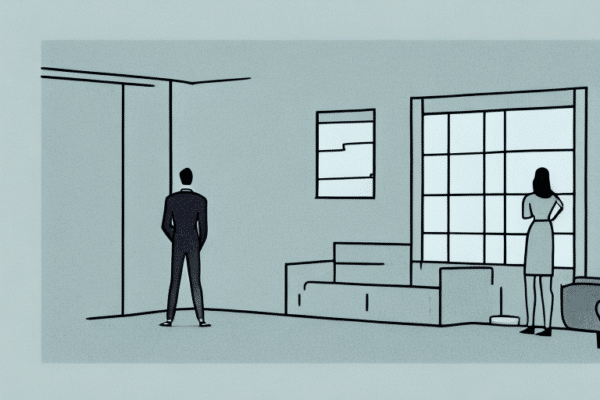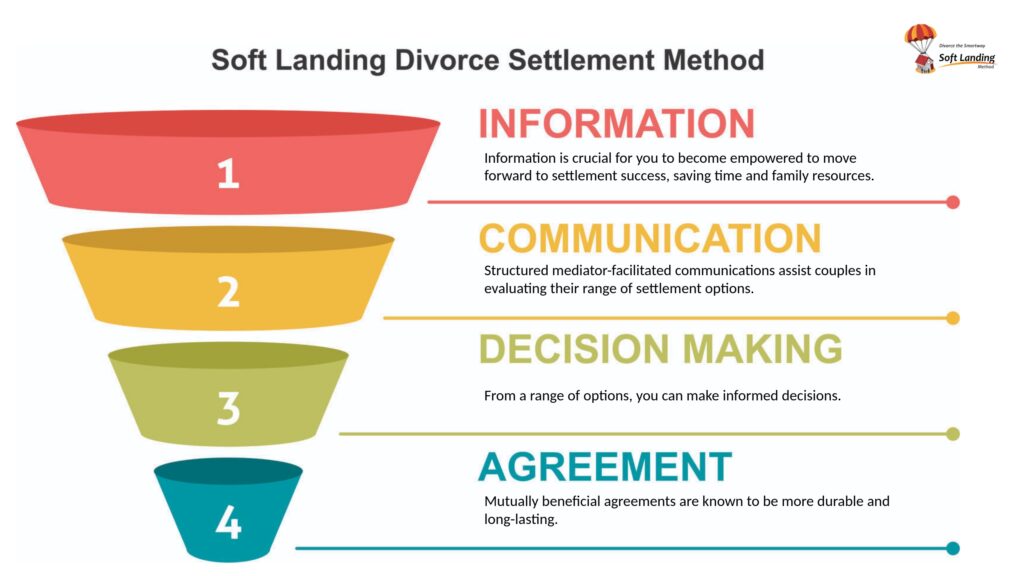When Wife Wants A Divorce: the Situation
The first step in dealing with a potential divorce is to assess the situation. It’s essential to take the necessary time to understand the reasons behind your wife’s decision to seek a divorce. It could be a result of many things, such as ongoing conflicts, infidelity, or growing apart over time. Take a step back and try to see the situation from her perspective so you can begin to work on the issues at hand.
Why Your Wife Asked for Divorce
Understanding why your wife is considering a divorce is critical for moving forward. Some reasons she may be considering a divorce include:
- Lack of communication
- Infidelity
- Financial issues
- Different life goals
- Lack of intimacy
It’s essential to have an open and honest conversation with your spouse to understand their perspective and get a clear picture of what’s going on in the marriage. Communication is key to resolving any issues that may be contributing to the breakdown of your relationship.
Assessing Your Feelings and Emotions
When faced with the possibility of a divorce, it’s natural to experience a range of emotions. Anger, sadness, frustration, and confusion are all common reactions to this type of news. It’s essential to take the time you need to work through these feelings and emotions. This may mean seeking the support of friends, family members or joining a support group or therapy sessions to help you through this difficult time.
It’s important to remember that your emotions are valid, and it’s okay to feel overwhelmed. Take the time you need to process your feelings and come to terms with the situation. This will help you to approach the situation with a clear mind and a level head.
Communication Breakdown: Identifying the Issues
One of the most common reasons for divorce is communication breakdown. Identifying the issues in your marriage that have led to this breakdown is essential for working towards a solution. It’s important to listen to your spouse’s concerns and address them in a non-judgemental way. Together, you can work on improving communication and re-establishing a healthy relationship with each other.
Some common communication issues that may be contributing to the breakdown of your relationship include:
- Not listening to each other
- Assuming the worst intentions
- Not expressing your needs and wants clearly
- Using negative or hurtful language
- Avoiding difficult conversations
By identifying these issues and working to improve communication, you can begin to rebuild your relationship and move forward together. This will take time, effort, and commitment from both parties, but it’s worth it to save a marriage and build a strong, healthy relationship.
Seeking Professional Help
It is not uncommon for couples to seek professional help when dealing with marital issues. There are several options to consider depending on your unique situation. Seeking professional help can be an excellent way to work through the challenges that arise in a marriage and can help you build a stronger bond with your partner.
Marriage Counseling: Can It Save Your Marriage?
Marriage counseling is a form of therapy that helps couples work through their problems and improve their relationship. A licensed therapist can facilitate communication and provide a neutral space for both partners to express their concerns. Marriage counseling can be an excellent option for couples who are committed to working on their relationship and strengthening their bond.
During marriage counseling sessions, couples will explore their feelings and work to identify the underlying issues that are causing problems in their relationship. The therapist will help the couple develop new communication skills and strategies to improve their relationship. Couples who are committed to the process of marriage counseling can often see significant improvements in their relationship.
Individual Therapy: Working on Personal Growth
Individual therapy can be a helpful option for individuals who are struggling with the emotions and feelings that come with the potential dissolution of a marriage. Therapy sessions can provide you with the tools you need to better understand yourself and ways to cope with your emotions healthily. It’s essential to prioritize your own emotional and mental well-being during this time.
During individual therapy sessions, you will work with a licensed therapist to explore your feelings and emotions. The therapist will help you develop coping strategies and provide you with tools to manage your emotions effectively. Individual therapy can be a helpful way to work through the challenges of divorce and can help you develop a stronger sense of self.
Coping with the Emotional Impact
The emotional impact of divorce can be overwhelming. Coping with the feelings of grief and loss can be a challenging task. Here are some helpful tips to help you cope:
Dealing with Grief and Loss
Divorce is a significant loss, and it’s essential to give yourself time to mourn. Allow yourself to feel the emotions that come with processing the loss. It’s okay to cry, scream, or even just sit in silence and reflect. Taking time off work or participating in activities that bring you joy can help during this time of grief. Consider taking up a new hobby or revisiting an old one. Maybe you’ve always wanted to learn how to paint, or perhaps you used to love playing guitar. Whatever it is, indulge in activities that bring you happiness and allow you to express yourself.
It’s also important to remember that everyone grieves differently. Don’t compare your grieving process to someone else’s, and don’t let anyone else tell you how you should be feeling. This is your journey, and you get to decide how you want to navigate it.
Managing Stress and Anxiety
The stress and anxiety of going through a divorce can take a toll on your physical and emotional health. It’s important to take steps to manage your stress levels, such as getting enough sleep, exercising, and trying relaxation techniques such as deep breathing or meditation.
Exercise is a great way to release endorphins, which are natural mood-boosters. Even just going for a walk around the block can help clear your mind and reduce stress. If you’re feeling overwhelmed, take a break and do some deep breathing exercises. Inhale deeply for a count of four, hold it for a count of seven, and exhale for a count of eight. Repeat this cycle a few times, and you’ll start to feel more relaxed.
Building a Support System
Surrounding yourself with a supportive network of friends and family can help alleviate feelings of loneliness and isolation during this difficult time. Join a support group or seek therapy if you need additional support and guidance during this time.
It’s important to remember that you don’t have to go through this alone. Talk to your friends and family about how you’re feeling, and don’t be afraid to ask for help if you need it. Joining a support group can also be beneficial. You’ll be able to connect with others who are going through similar experiences and share your thoughts and feelings in a safe and supportive environment.
Therapy is another option to consider. A therapist can provide you with tools and techniques to help you cope with the emotional impact of divorce. They can also help you work through any unresolved feelings or issues that may be contributing to your stress and anxiety.
Remember that healing takes time, and there’s no right or wrong way to cope with the emotional impact of divorce. Take things one day at a time, and be kind to yourself. You will get through this.
















































